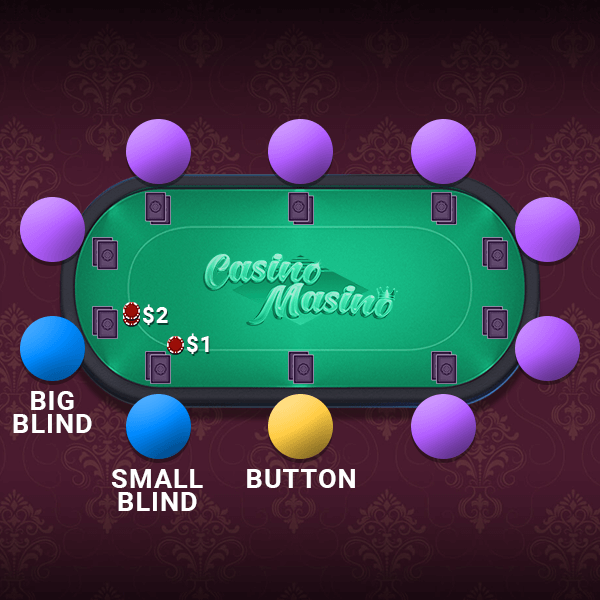Texas Holdem Tournament Rules Blinds
Blinds Up Texas Hold 'em Poker League has a dealer that deals the cards at all times The dealer button is placed in front of the dealer. The first player to the left of the dealer is called the Small Blind. The second player to the left of the dealer is the Big Blind. The Six-Big Blind Rule When you reach six big blinds, it can become correct to raise even wider than the charts suggest. This is because six big blinds is about as low as you can go and still expect people to fold to your raises. 100+ Big Blinds (Beginning of the Tournament, Usually) Having over 100 big blinds in your stack usually means you're at the start of the tournament and most everyone has a deep stack. When you have over 100 bigs but nobody else does is a very different situation, but comes up so rarely that I won't cover it today.
Many players tense up when their stack reaches 15 big blinds and below. In truth, you should relax; with a stack this short, poker just became really easy to play. Instead of having to figure odds and read players, all you have to do is decide whether to shove or fold. At this stage of a tournament, I can give you as close to a poker 'system' as there is available.
11-15 Big Blinds
First in with this size stack you're too short to raise and then fold, but too deep to risk your whole stack on poor holdings. Stick to very premium hands in early position -- throw away AQ offsuit and KQ suited under the gun, and stay away from the smaller pairs. In late position, you can open it up a great deal, but if there are no antes, don't get too crazy. With the right type of opponents, you can make a small raise or limp with Aces or Kings if you are near certain that it will be raised behind you so you can go all in when the action gets back to you. But if there's any doubt, you're better off just pushing your chips in the middle with your big pairs.
Ten Big Blinds and Under
Poker is real easy now. With this stack, you can play unexploitable poker. Using Independent Chip Modeling and the Nash Equilibrium you can solve every situation with your stack size and hand versus however many random hands are left to act behind you. Don't know what ICM and Nash Equilibrium are? Professional card player, Chris 'Fox' Wallace and myself did the heavy lifting for you and put our charts up at pushfoldcharts.com. Go to pushfoldcharts.com and study the charts—or buy one to take with you to the card room. They give you all the information you need on what cards to push with and what cards to fold.


Though the charts give you the unexploitable ranges, there are still some adjustments you should be making, listed below.
The Six-Big Blind Rule
When you reach six big blinds, it can become correct to raise even wider than the charts suggest. This is because six big blinds is about as low as you can go and still expect people to fold to your raises. Once you fall below that number, people begin to call very loosely—often with any two cards—and the potential profit from people folding (which is the most important part of these small stack calculations) drops to nothing.

Under Five Big Blinds
You're almost certainly going to get called when you go all in with a stack under five big blinds. Due to the pot odds and the fact that there are still a few opponents who will fold their trash incorrectly, it's still correct to push with most of your hands here. But the knowledge that you are likely going to get called can still affect your choices. If you have a true trash hand (seven-deuce offsuit springs to mind) and the next players on the blinds are very weak you might fold and hope to get it in first next hand. If there are no antes and you can look at a bunch more hands for free, you might fold. But if there are antes and you are first in, your best option for most hands is to push and pray.
Texas Hold'em Tournament Rules Blinds
Table Image
Texas Holdem Rules Blinds
Another good reason to play very tight early in a tournament is so that when you get to the late stages people will give your raises respect. As above, the potential profit from people folding—called Fold Equity—is key to successful push/fold strategy. If you can convince your opponents that you only put all your chips in the pot with a nut hand, your fold equity, and your entire tournament equity, goes way up.